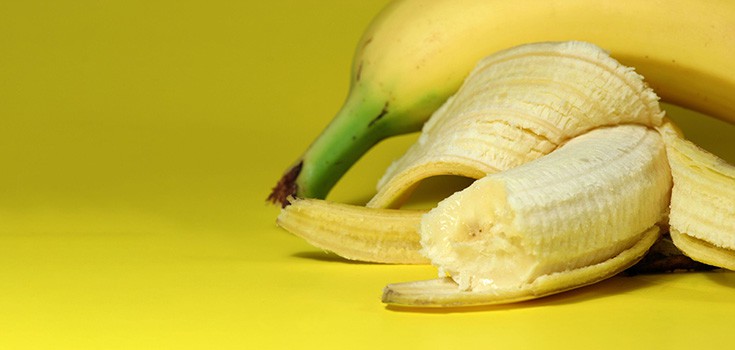Foods Rich in Potassium (Even more than a Banana) and Why You Want Them!

If you know any endurance athletes or athletic people in general, you’ve likely seen them reach for bananas again and again. But do you know why? Bananas are seen as one of the most potent and convenient forms of potassium, leading to a boost in energy. Great for preventing muscle cramping and weakness, potassium acts as an extremely useful nutrient for those engaging in moderate or intense exercise. But potassium isn’t just for athletes; it’s crucial for everyone. And while you may reach for a banana, there are actually many other foods rich in potassium that outrank bananas!
Why You Should Eat Foods with Potassium
Potassium, along with sodium and chloride, is known as an electrolyte; that means potassium actually conducts electricity when dissolved in water. Pretty cool, huh? These electrolytes play an important role in nerve transmission—the body’s method of communicating. In addition potassium is important in muscle contraction, helping with both the degree and frequency of contractions. It can also lower your risk of hypertension, or high blood pressure.
Potassium deficiency is rare, because the mineral is present in so many foods. However, signs of deficiency include: weakness, confusion, fatigue, heart problems, and diarrhea. Generally, adults should get around 4,700 mg of potassium each day. If you are an athlete or just extremely active, you should consume even more foods rich in potassium than the average person
So, where can you find it?
Foods Rich in Potassium
Containing about 422 mg of potassium, bananas are known as a great source for the nutrient. But there are many other foods rich in potassium that you may not know about. Some have twice or as much as three times the amount of potassium as bananas. Beet greens, for example have about 1,309 mg in a single cup. Potatoes, with the skin on, have more than 1,000 per medium-sized vegetable. Spinach is an excellent source with more than 800 mg per cup. Even an avocado has more potassium than an average banana: with around 540 per 3 ounce serving. Here are some other options:
- Raisins
- Dried figs
- Beans and legumes
- Brussels sprouts
- Soybeans
- Artichokes
- Sweet potatoes
- Chick peas
- Pistachios
- Pumpkin seeds
It shouldn’t be too hard to get enough potassium from natural food sources in any given day. The concentration of potassium is depleted in cooking, however, so eat what you can raw, and if you have to cook it, consider blanching or steaming.
Additional Sources:

Be careful with anything soy though, they're high in sugar and potentially dangerous to humans.
you are right. soy is not good for you and is more than likely genetically modified
Don't forget Kiwi. More K than banana and it also has iron.
Molasses has almost 2 to 1 of potassium in one tablespoon and these football players are on the sidelines eating a gut full of bananas to prevent leg cramps, go figure.
Molasses has too high a glycemic index, not good for keeping down weight
Beet greens, soybeans, and artichokes are most likely GMO and I am surprised that this website would consider recommending them. They are full of glyphosate from the Roundup.
Well we could get organic ones. I've not heard anything about GMO artichokes, but these days you never know. It's important to buy organic potatoes because they retain a lot of pesticides.
artichokes are GMO?
Kale is also high in potassium…orange juice, which is often recommended by doctors to supplement potassium, is very high glycemic, which fuels obesity, and anything but natural as the very essence of the oranges used to flavor it is stored in huge silo like containers for up to a year before it's put in the orange "juice". Most likely all GMO oranges in the big companies like Tropicana and Minute Maid.
apples are the first Genetically Engineered fruit on the market, and they were just approved. Gross, though, right? And who knows what sprays are on those conventional oranges.
Coconut water is an excellent source of potassium. We use it to make a morning smooth, along with a banana or two (old bananas are perfect for this) and pineapple (with the core included). Older bananas and pineapple core are both helpful in preventing cancer.